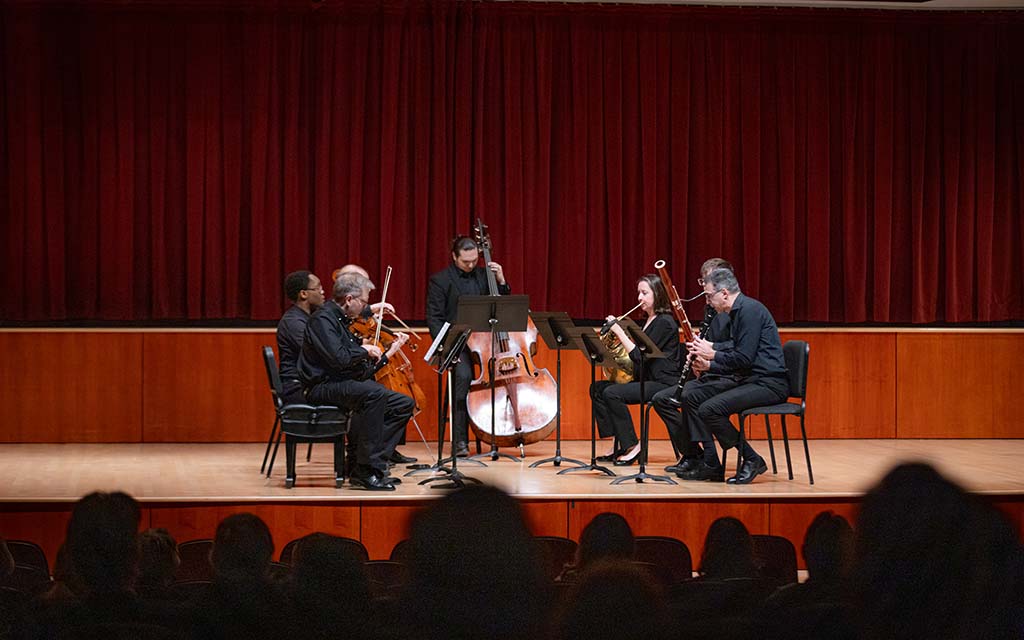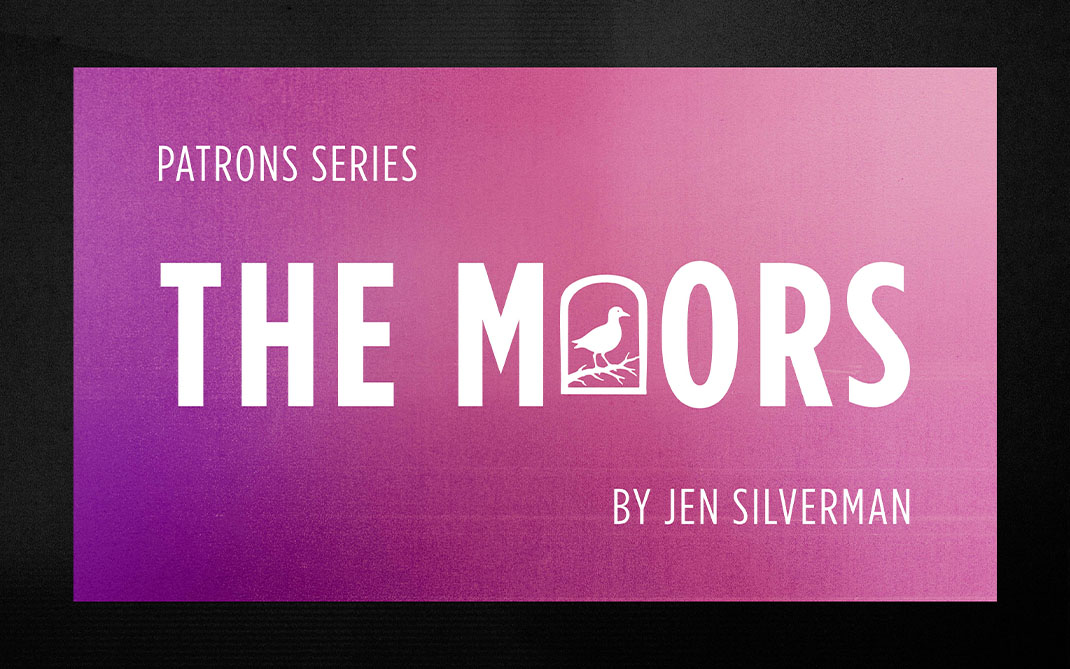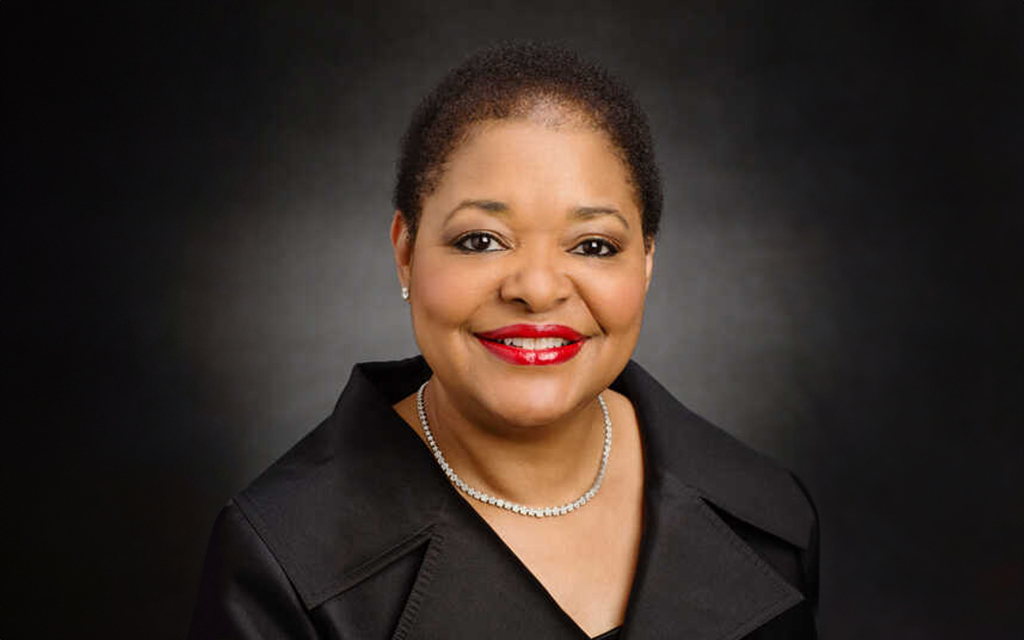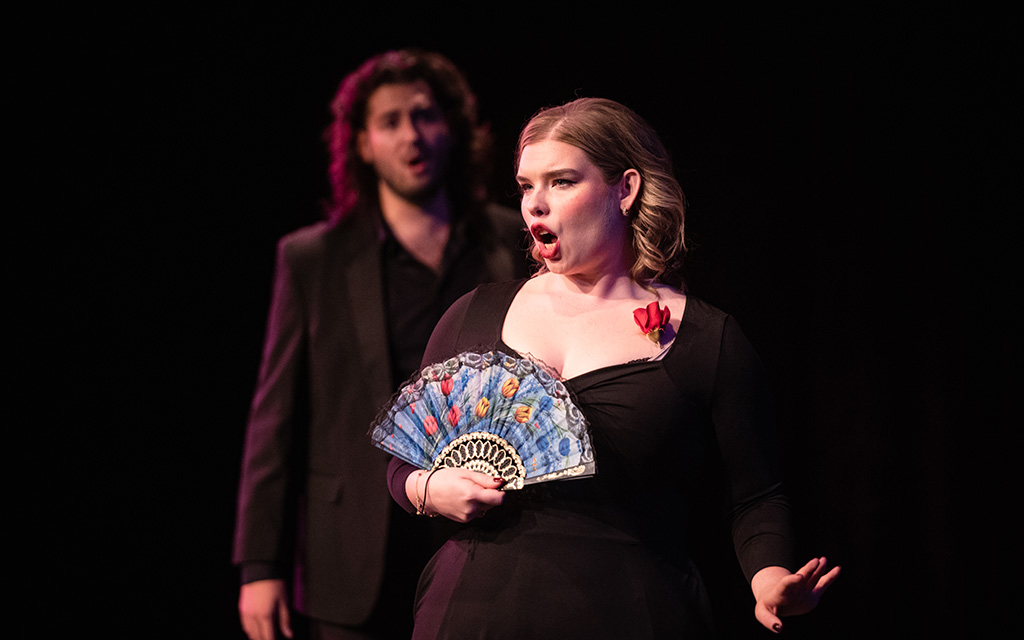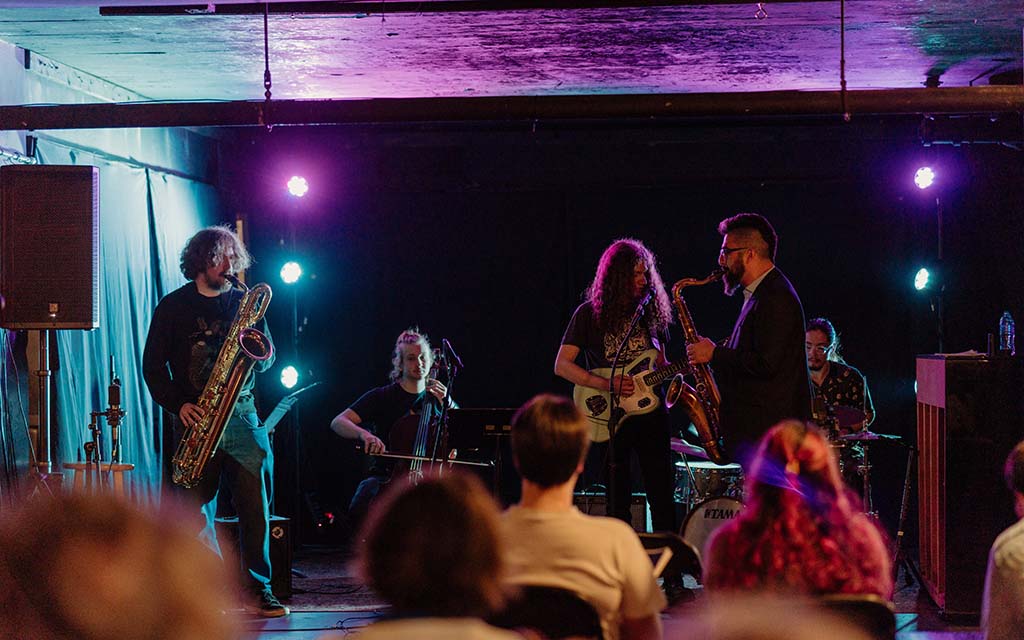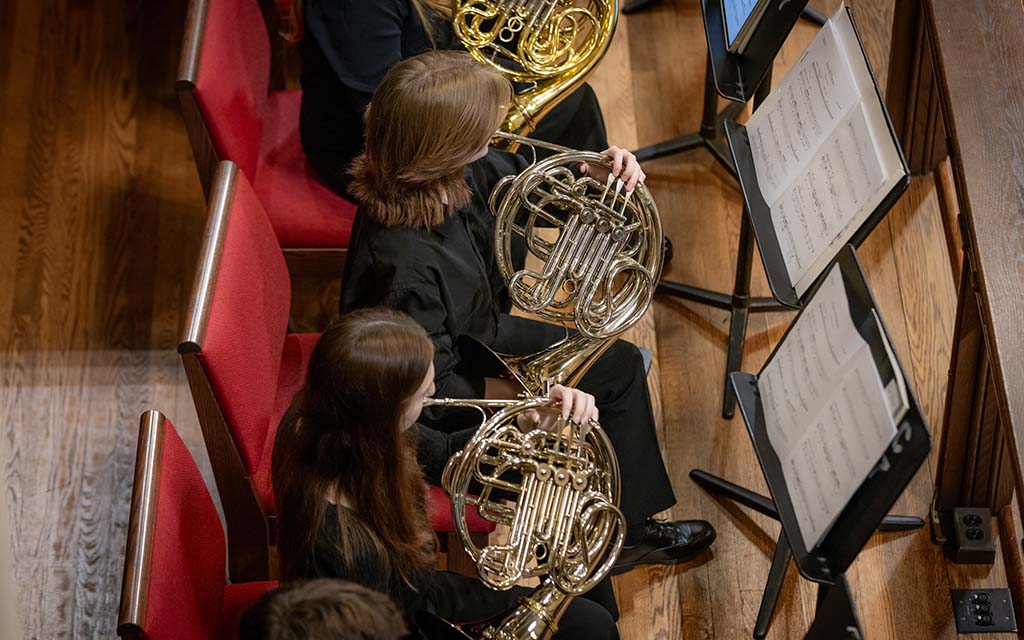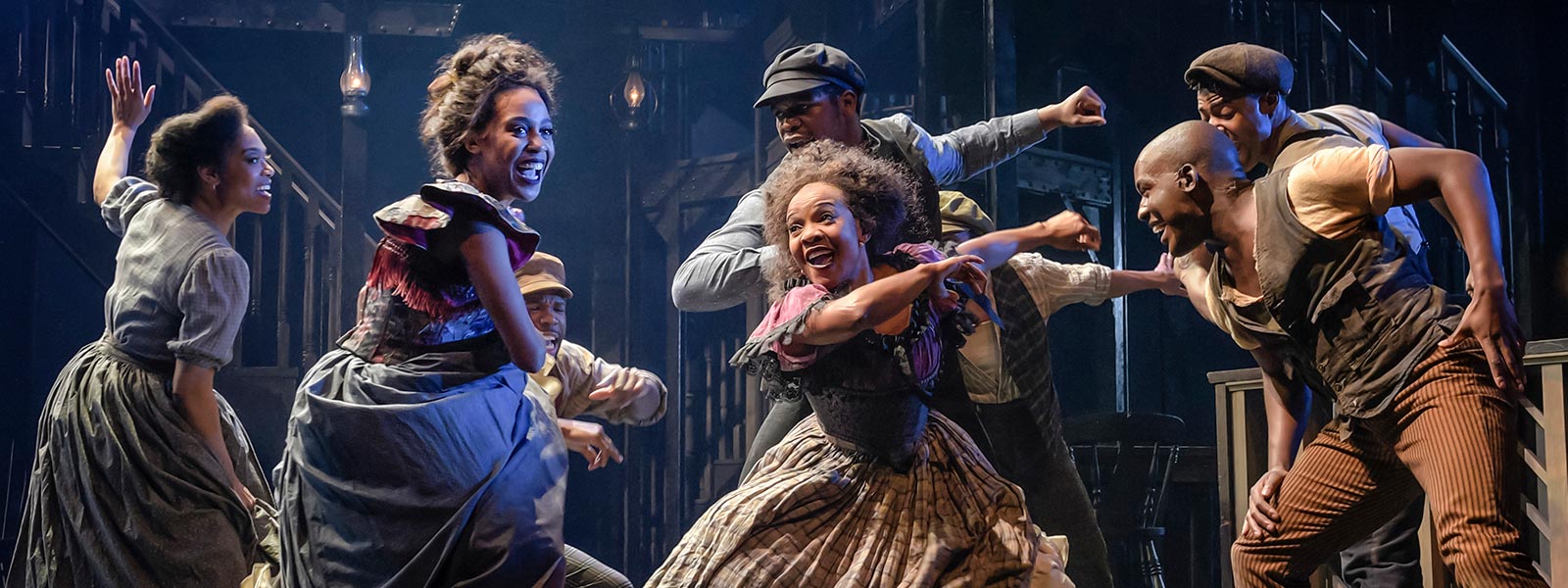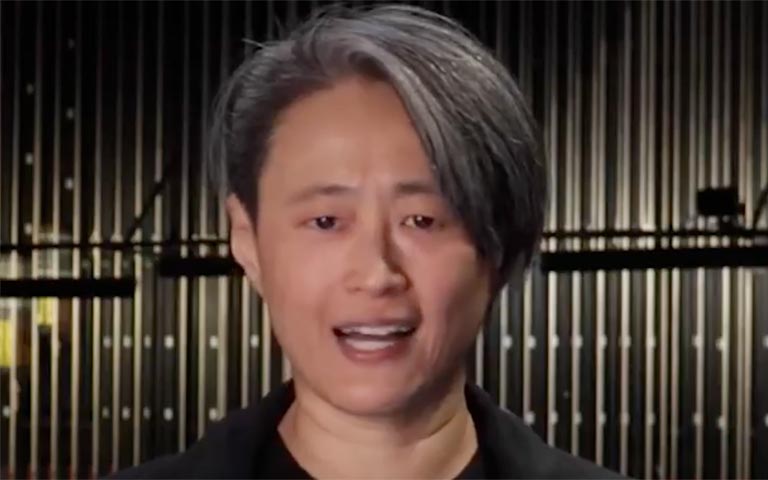Audrey Hoo on her role at Berkeley Rep, cultivating relationships and the changing theater industry
As Production Manager at Berkeley Repertory Theatre, Audrey Hoo (M.F.A. Design & Production '06) spends her days balancing the fiscal and technical aspects of theater with the art and storytelling that makes the form so impactful.
That balancing act is something she's honed over years in her production management career, starting as a teenager in Singapore, where she worked for companies like TheatreWorks Singapore, Necessary Stage and Esplanade – Theatres on the Bay. Following her completion of the graduate Technical Direction program at UNCSA, she went on to spend eight years at Brooklyn Academy of Music, followed by a move to the West Coast and production management roles at La Jolla Playhouse and A.C.T. Theater.
Here, she reflects on her role at Berkeley Rep, the shifts in the industry catalyzed by the events of the past year and a half, and how her time at UNCSA helped nurture her ability to build relationships.
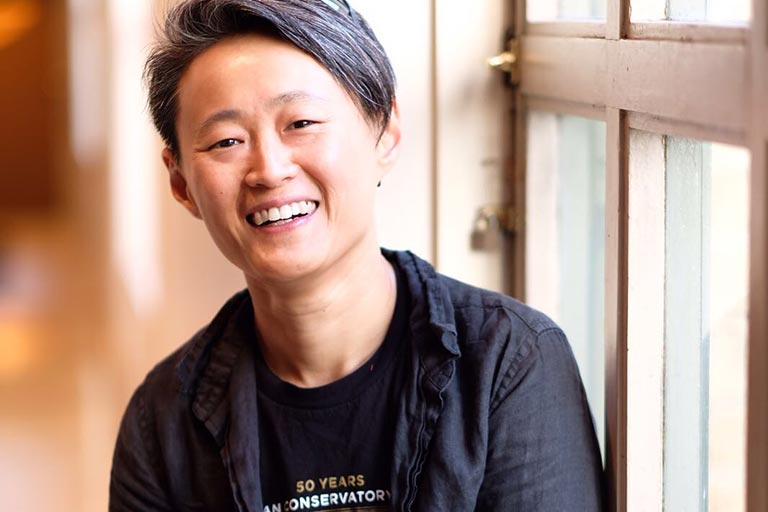
Audrey Hoo / Photo: Law Kian Yan
Can you tell us about what you do as Production Manager at Berkeley Rep?
I've been here for about three years. Everything related to what you see on stage that is physically part of the storytelling — the budgeting process, scheduling process and helping to coordinate between different production departments — is part of my job. The folks that report to me are technical directors, the prop supervisor, scenic charge, stage operations supervisor, master electrician, sound and video supervisor and costume director. I'm also considered senior leadership, and I sit on the weekly senior team meetings with executive leadership.
A lot of my time at Berkeley Rep is spent in the future. The way I like to see production management is we need to stay at least three steps ahead of everyone else. We are actually already planning for next season. I like to be able to give the people that work in production what they need to succeed and advocate for them at those big senior team meetings.
What do you enjoy about your work as a production manager?
In our world, general management, company management and production management really are so closely related that we're always talking with each other all the time. I'm also a part of speaking with the artistic team, because I see my job as both fiscally responsible and as a responsibility to the art and the artists. So I equally report to the managing director and the artistic director. I think that's the fun part of my job, because I feel like we are so much a part of telling the story on stage.
There's just something about the community of people that create art that is both a little bit wacky, but also just really able to reflect on the human experience and help us figure out how to talk about difficult things or impact some deeply entrenched biases.
Audrey Hoo
I grew up in Singapore and started production managing at companies before I came to UNCSA and I really enjoy the people. There's just something about the community of people that create art that is both a little bit wacky, but also just really able to reflect on the human experience and help us figure out how to talk about difficult things or impact some deeply entrenched biases. It digs at you. I feel as an artform it's really powerful and being part of that is very fun.
How do you apply what you learned at UNCSA in your work?
The thing about the [Design & Production] graduate program is that it's very intense and challenges a person. You not only learn technical skills in the classroom, but it's a way of discovering more about yourself. How do you learn best? How do you cope with time management? How do you network with people?
I often think about my time there — being in a studio and just talking about ways to approach an Advanced Theater Technology math problem or some interesting engineering thing where someone says 'What do you think about this?' and we're all just sitting around thinking and talking about it. I have really fond memories of staying up to draft something and the set designers would come over or we would talk with the stage manager — I enjoyed that, and it really mirrors the real world. It still centers around the people.
Those things I still carry with me. How do you form community bonds? How do you figure out people? And it's so important to know those nuances because in production management, most of what I deal with are relationships and people.
What are you currently working on or interested in?
I have been reflecting on the combined effect of the pandemic and the murder of George Floyd. A lot of conversations have been happening in our industry around equity and inclusion. That's very difficult work. It's very difficult for us as an industry to pause and think about why we do things the way we have? And how can we as an industry change that path?
Specifically in the production management field, there are very few BIPOC production managers. Why is that? We're recognizing that it's going to take some time to figure out how we can make this industry stronger and what microsteps we can change that we might not have seen before.
That for me, has really taken front and center. Whatever questions come up, it's about taking this lens of 'How can we center the question on the people that are most likely to be harmed by this decision? And how can we reduce that harm?' We've never asked those questions before.
Audrey Hoo
That for me, has really taken front and center. Whatever questions come up, it's about taking this lens of "How can we center the question on the people that are most likely to be harmed by this decision? And how can we reduce that harm?" We've never asked those questions before.
What advice would you give current students?
Never stop learning, especially in production management. My training at UNCSA in technical direction really served me in making decisions about things — and knowing that I don't know all of it, so I'm going to call someone. Very often I would call back to school to talk to one of my teachers. What we do in technical theater can be risky; there is an element of life safety. Knowing enough to know when you don't know something is so important.
And make friends in school. I still call the people from my studio all the time. Those friendships really last a long time. Pay attention to the relationships around you.
Get the best news, performance and alumni stories from UNCSA.
SUBSCRIBE TO OUR NEWSLETTERS
September 20, 2021
